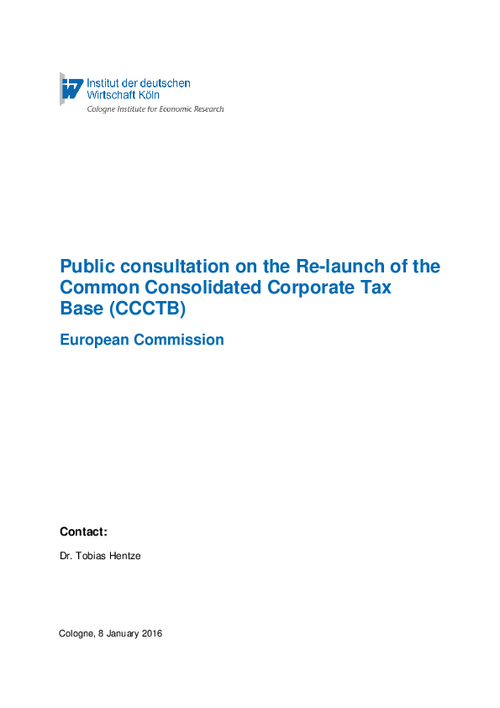Public consultation of the European Commission

Re-launch of the Common Consolidated Corporate Tax Base (CCCTB)
Responses

Public consultation of the European Commission
The CCCTB would mean a significant reform of the current tax regime in the EU. The concept has to be evaluated together with the anti-BEPS initiative since the two approaches are not completely in line with each other.
The stimulation of fair tax competition and economic growth should be the main goals when changing the tax regime. The competitiveness of the companies located in the EU has to be ensured also compared to companies outside the EU.
Due to the magnitude of the project and to the previous experiences it will take time to implement the new tax regime. Furthermore, the different interests of the member states might make the reform even more complex than it already is. In this regard it is most important to find an approach on which all member states agree in order to achieve the level playing field in the European Union.
It might be an idea to set up the CCCTB system temporarily as a non-binding option. This can help to identify the key aspects of the system based on empirical evidence.
In conclusion, the CCCTB regime should be created with caution and by considering many relevant details in a technical but also political way. If so, the CCCTB might work as a reliable and sustainable corporate tax regime in the future.

Tobias Hentze: Public consultation on the Re-launch of the Common Consolidated Corporate Tax Base (CCCTB) – European Commission
Responses

More on the topic

Challenges for the debt brake
In 2019, Bardt et al. (2019) initially presented a comprehensive estimate of the unmet public investment needs in Germany not covered in household planning at the time, totaling around €460 billion over ten years.
IW
Global and European corporate tax reform concepts
The harmonization of corporate taxation at an international level has been on the political agenda for many years. Both the Organization for Economic Cooperation and Development (OECD) and the European Commission have presented reform projects in this regard, ...
IW